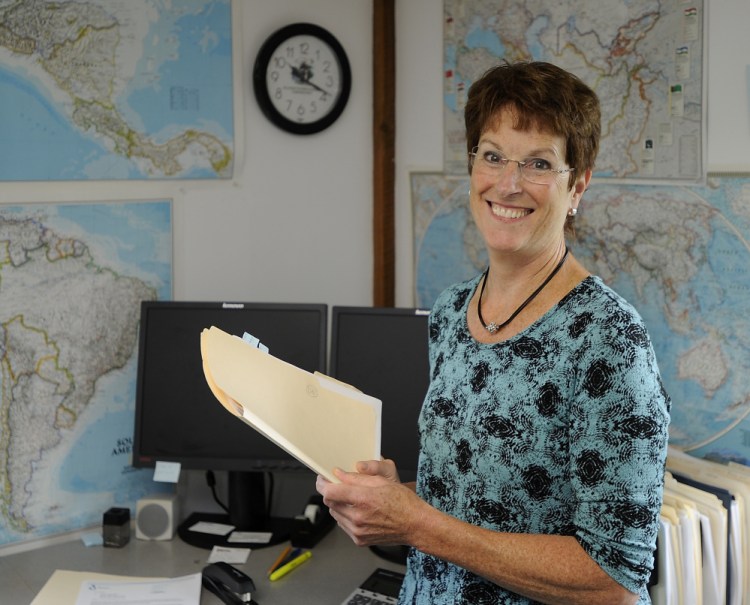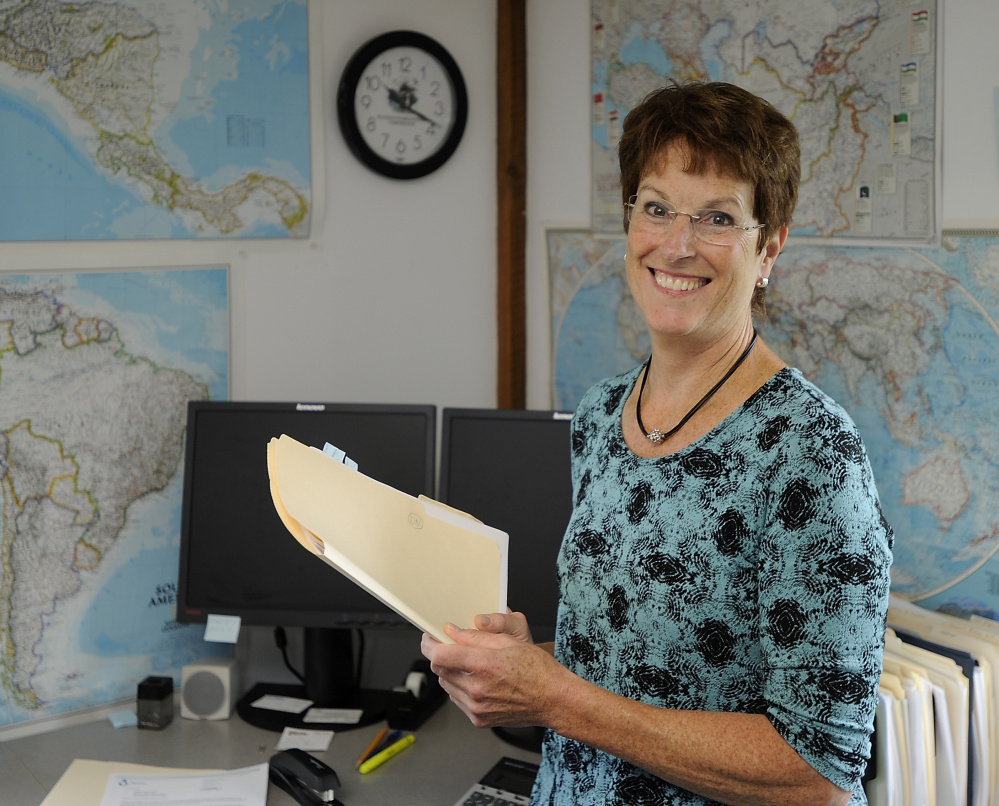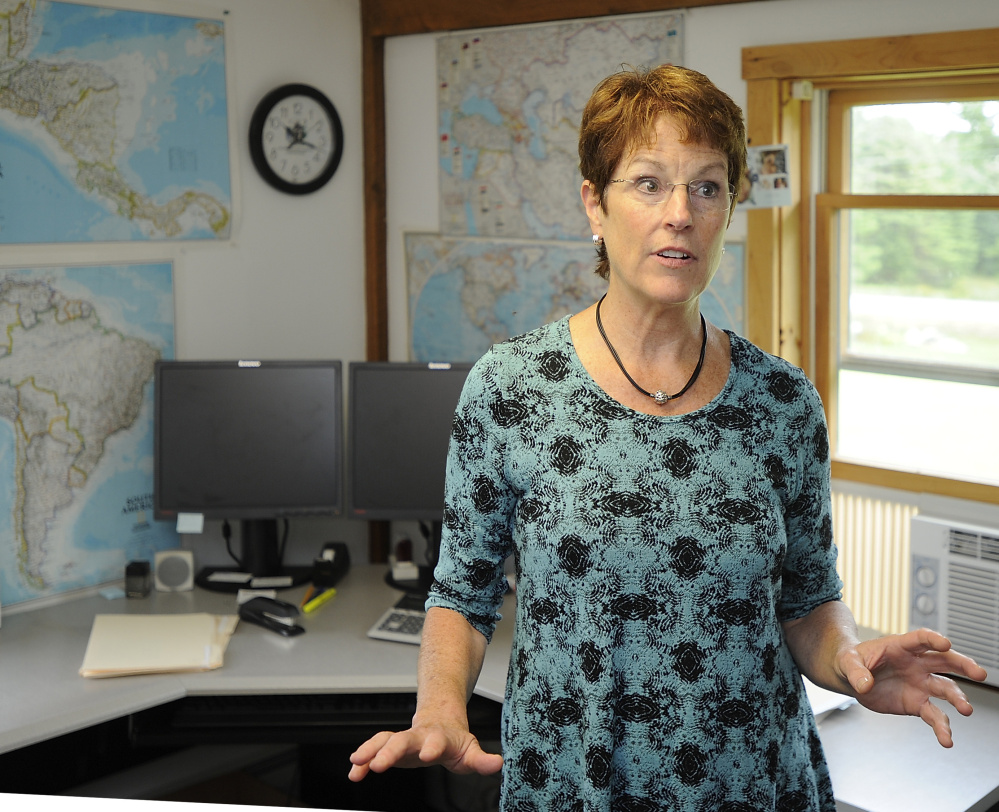When a developing country in some far-flung region of the globe has a problem that requires technology to solve, there’s a good chance it will place a call to New Gloucester, Maine.
For the past 23 years, New Gloucester has been home to Planson International, a small, low-profile business that has developed a reputation in the developing world for its ability to handle any job. Recently, the company has been a behind-the-scenes player in the effort to track Syrian refugees fleeing to other countries, and an advocate for the continued operation of a controversial government entity that loans money for foreign purchases of U.S. goods.
At any given time, Planson is involved in dozens of projects around the world. It supplied equipment for a project that used trained rats to detect land mines in Mozambique. It provided solar-powered voter registration kits to keep elections inclusive and fair in the Tanzanian countryside. It turned sections of plastic pipe into traps that sterilize tsetse flies with radiation in Zanzibar to wipe out the deadly sleeping sickness they carry.
Although the company mostly provides technology, it also has supplied items from steel roofing materials to trucker hats.
“We’re kind of a consolidator and a value-added reseller,” said the company’s founder and president, Connie Justice.
BEST TECHNOLOGY AT LOWEST PRICE
A typical assignment for Planson begins with a request from an international organization, government, nongovernmental organization or business. Much of the work involves projects funded by the United Nations, often related to human development, disaster relief or conservation.
The client explains the project, and Planson’s job is to come up with the best technology solution at the lowest possible price.
“We’re not sending bodies – people – over there,” Justice said. “We’re just outfitting those people with equipment.”
Planson first has the items shipped to Maine, where they are assembled, customized or upgraded to meet the client’s needs. The work might involve upgrading dozens of computers, smartphones or other devices, installing custom software and changing everything to the client’s native language. Before it ships them out the door to some exotic locale, it double- and triple-checks to make sure each item is complete, working and ready to be picked up and used. A missing accessory or cable is unacceptable, because the device may be headed for a region where such items would be difficult to replace.
“We know that everything is going to work when they get there,” said Planson Logistics Manager Steve Clark.
The company provides its own custom warranty, and contracts with local service and repair companies in the client’s area to ensure their work.
Justice is an export expert who has lived abroad and speaks Russian. She founded Planson in 1989 with her then-husband when they were living in California – the company bears his last name. They relocated to Maine in 1992, and she took over the business when they divorced.
It is not a typical 9-to-5 operation, she said. At any hour of the day or night, a Planson representative may be communicating via Skype or email with a client on the other side of the world. Many of the company’s employees speak multiple languages.
Goods are constantly moving in and out of the Planson warehouse. It is filled with stacks of desktop and notebook computers, digital projectors, monitors, generators, uninterrupted power supply systems, server racks and pallets of solar panels. Packages are labeled with their intended destinations, including Haiti, Kenya, Chad, Nicaragua, Myanmar, Afghanistan and Iraq. The items are shipped by truck to Boston, and then by plane to the client.
The company is frequently called upon to respond to major world events. For example, it has been supplying many of the computers that are being used to process the relocation of Syrian refugees. It also is outfitting much of the technology for an upcoming World Bank and International Monetary Fund global conference in Lima, Peru.
PREFERRING TO BE UNDER THE RADAR
In 2014, Planson generated $30 million in sales – up 23 percent from the previous year – and shipped products to more than 100 countries. The company has a staff of 32 employees in Maine, plus four more at its European subsidiary in Svendborg, Denmark.
Justice said she typically does not seek media coverage because most of her clients are overseas, and the company prefers to operate under the radar for security reasons.
However, she has been speaking out recently in support of the Export-Import Bank of the United States, or Ex-Im Bank, which finances and insures foreign purchases of U.S. goods. The bank has helped Planson expand its business recently by providing both financing and insurance, but the bank’s charter expired in June (with a six-month grace period) and Congress has yet to renew it. Without reauthorization, the bank will be unable to issue new loans and guarantees as of Oct. 1, which is Thursday.
Supporters of Ex-Im Bank, including U.S. Sen. Angus King, say it helps maintain and create middle-class jobs in the U.S. and contributes to a stronger national economy. Critics say it disproportionately benefits a handful of large corporations such as The Boeing Co., along with foreign governments to which the bank has offered low-interest loans to purchase U.S.-made aircraft and other goods.
King has argued passionately for the bank’s reauthorization, and Justice visited Washington recently to lend her support. The Ex-Im Bank supported more than $265 million in exported sales for businesses in Maine from 2007 to 2014, including more than $21 million in sales from Planson, according to King.
Justice said the bank’s demise would not affect Planson’s ability to conduct business, but it could make future expansion more difficult.
“They were a huge help,” she said.
HAPPY CUSTOMERS, ODD REQUESTS
Although most of the company’s business is earned through a competitive bidding process, Justice said more clients have been reaching out directly because they have developed a strong relationship with Planson over the years. She provided the Portland Press Herald with several letters written in English from current and former clients.
“I would like to take this opportunity to compliment Planson for your constant effort to satisfy us with our many requirements and questions and problems that we raise,” reads one letter, from a regional procurement adviser for Africa for the United Nations Office for Project Services who requested anonymity for security reasons. “I have experienced only good delivery and services from Planson in Burundi, Congo, and now I see also in Sierra Leone.”
Justice said Planson did turn down a job once. It would have involved supplying goat semen for breeding purposes. She decided it would be too difficult to keep the semen frozen over the long journey.
“We get some oddball requests,” she said.
J. Craig Anderson can be contacted at 791-6390 or at:
Twitter: jcraiganderson
Send questions/comments to the editors.







Success. Please wait for the page to reload. If the page does not reload within 5 seconds, please refresh the page.
Enter your email and password to access comments.
Hi, to comment on stories you must . This profile is in addition to your subscription and website login.
Already have a commenting profile? .
Invalid username/password.
Please check your email to confirm and complete your registration.
Only subscribers are eligible to post comments. Please subscribe or login first for digital access. Here’s why.
Use the form below to reset your password. When you've submitted your account email, we will send an email with a reset code.